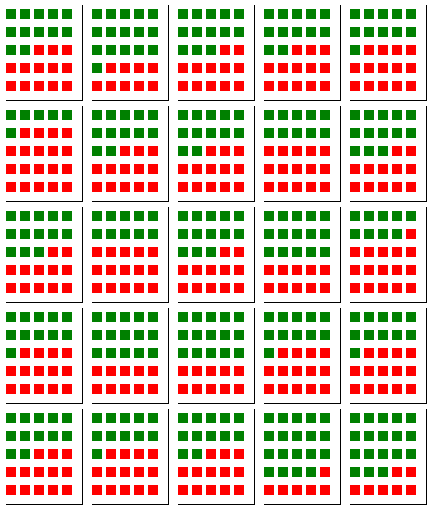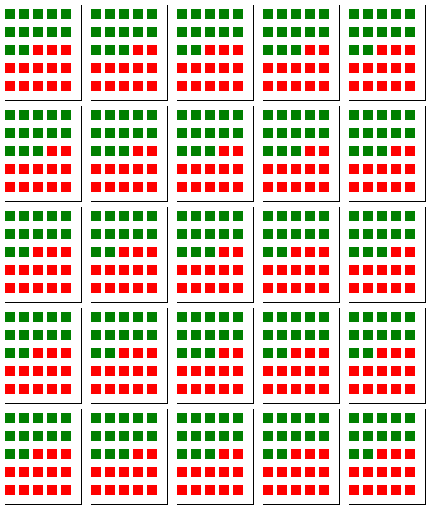Based upon how Thanos explains it, planet by planet is most plausible
Thanos explicitly explains his motivations in the film. He's trying to to spare other populated worlds from the fate that befell his. Which is to say, collapse due to overpopulation and competition for/exhaustion of finite resources.
Prior to acquiring the infinity stones, his method for accomplishing that goal was to visit every planet and then use conventional measures to eliminate half of its population. Whether 50% is some ideal number for reducing resource contention doesn't matter, what matters is that Thanos seems to have considered it to be. He could have just as easily killed 20% of the population, or 70%, or anything else, but he settled on 50% as the "correct" proportion for his goal.
So the 50% per planet seems significant, and although killing 50% of all the people on each planet will produce the same bodycount as killing 50% of all people in the universe, there are statistical differences between the approaches.
A demonstration probably works best, so here's a Thanos Murder Simulator (or an alternate blue/orange version).
Notably, killing 50% of the people in the entire universe produces a result like this (each box is a person; green is alive, red is dead, groupings of boxes are planets):

Notably, one unlucky planet has only 6 survivors (nearly a 75% kill rate). A couple of others have lost only ~25% of their populations. If you need to kill 50% to curtail overpopulation on a planet, then killing everyone in the universe at random is a bad way to do it. You'll get some planets emerging relatively unscathed, and others catastrophically depopulated (I mean, even more catastrophically than 50% would be).
You get a much more uniform result by killing 50% of the population on each planet:

Considering Thanos's stated goals/motivations and the way he went about culling planets before completing the Infinity Gauntlet, the latter scenario seems like what he would go for.
Other characters say 'half the universe'
However, these other characters are not Thanos, and may be paraphrasing for expediency.
The only character who knows what Thanos intends is Thanos, and he gets to deliver a fairly lengthy explanation in the film. His explanation leans more towards randomly killing 50% of the population of each planet than it does towards 50% of everyone in the universe.
The bodycount is the same either way, but to Thanos it's the distribution of the bodies that's most important.


